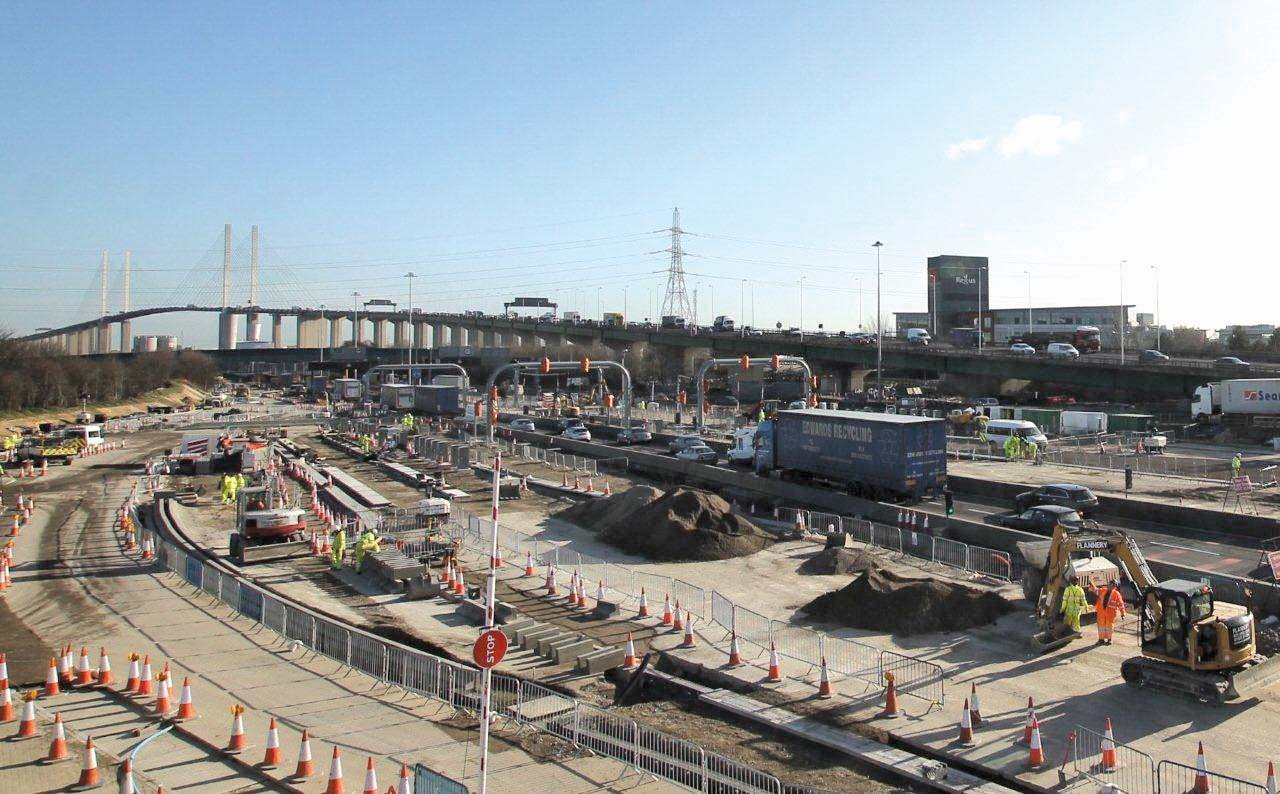With the launch of Dart Charge set for 30 November, work to remove the toll booths will begin on Friday 28 November - the same weekend the new payment arrangements go live. Dart Charge means that drivers will no longer stop at a barrier to pay the charge. Instead, they will pay online, by phone, by post or in one of thousands of payzone retail outlets.
The new payment arrangements will signal the start of major construction work to improve the road layout at the crossing, with 27 lanes of traffic reduced
With the launch of Dart Charge set for 30 November, work to remove the toll booths will begin on Friday 28 November - the same weekend the new payment arrangements go live. Dart Charge means that drivers will no longer stop at a barrier to pay the charge. Instead, they will pay online, by phone, by post or in one of thousands of payzone retail outlets.
The new payment arrangements will signal the start of major construction work to improve the road layout at the crossing, with 27 lanes of traffic reduced to four in each direction and a new safety system of traffic signals and barriers on the approach to the tunnels northbound, which will prevent over-height vehicles from entering the tunnels, hold traffic in case of an incident or congestion in the tunnel, and allow the safe release of vehicles under escort, such as hazardous loads.
The roadworks will continue until spring 2015 when drivers will feel the full benefit of the changes through quicker journey times. Until then drivers can expect some delays but all work is being planned to minimise disruption.
503 Highways Agency project director Nigel Gray said: “The payment booths have been part of the Dartford landscape since 1963 but they contribute to congestion and cause delays. That’s why they are being removed and we are introducing a new payment system called Dart Charge. From 30 November drivers will no longer pay at the booths. Instead they will pay in advance or by midnight the day after crossing, helping to speed up journeys.”
The new payment arrangements will signal the start of major construction work to improve the road layout at the crossing, with 27 lanes of traffic reduced to four in each direction and a new safety system of traffic signals and barriers on the approach to the tunnels northbound, which will prevent over-height vehicles from entering the tunnels, hold traffic in case of an incident or congestion in the tunnel, and allow the safe release of vehicles under escort, such as hazardous loads.
The roadworks will continue until spring 2015 when drivers will feel the full benefit of the changes through quicker journey times. Until then drivers can expect some delays but all work is being planned to minimise disruption.








